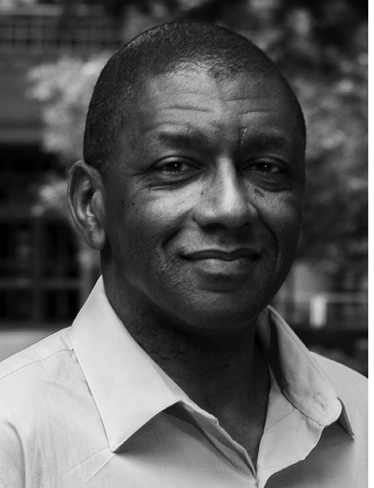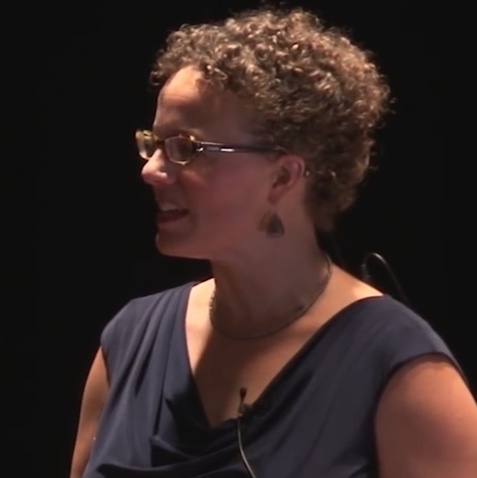Race Webinar Leaders
These webinar leaders provide DEI training for the parent community. Their ideas are rooted in Critical Race Theory and sprinkled with generous doses of therapeutic talk.



HOWARD STEVENSON
What he gets right: Mr. Stevenson’s calm delivery and counseling tone fits well with his emphasis on encouraging black males to develop emotional regulation. He recognizes that being vulnerable and engaged is key to building good relationships with kids with behavior struggles. In his view, adults modeling racial protest without also modeling affection and discipline at home is malpractice.
What he gets wrong: For Howard Stevenson, negative behaviors and anger among black men and boys are presumed to be the result of racial illiteracy. If they learn to love their own story and hear more about black history, racial profiling, and racism, they can experience “healing” from “racial trauma”.
Psychology and storytelling is central to his work, and his proposals for behavioral change are built around the psychology of race narratives. In interviews and podcasts, he uses therapeutic language to emphasize the power of “falling in love with” and one’s own racial story. It isn’t clear how this poetic theory can address the crushing realities of fatherlessness and crime among black youth, which are far more impoverishing than the microaggressions invented by well-paid DEI experts at elite private schools.
Like other race lecturers, Mr. Stevenson fails to address issues of the present that are caused by destructive behavior patterns, not “racial trauma” from whites.
One of his statements reveals the centrality of race to his misguided beliefs. Even if we permit some poetic license, he makes a ridiculous claim when he says,
“You’re always communicating about race, whether you talk about it not.”
His social media also gives us a glimpse into a worldview that is hard to detect in his measured tones.
On Twitter, he retweets support of a Reparations Bill in California, as well as the idea of student debt cancellation. Even more concerning is is his nostalgia for the Black Panther movement, as evidence in his retweet of a ”Rest in Power” post about two Black Panthers. This would be similar to a white person retweeting a fond remembrance of a Klansman or white supremacist.
Here are a few of the ten points of the Marxist Black Panthers he remembers with nostalgia:
We Want An End To The Robbery By The Capitalists Of Our Black Community
We Want All Black Men To Be Exempt From Military Service.
We believe that Black people should not be forced to fight in the military service to defend a racist government…We will not fight and kill other people of color in the world who…are being victimized by the White racist government of America.
We Want Freedom For All Black Men Held In…Prisons And Jails.
—He retweets the universalist Desmond Tutu: ”God is not a Christian.”
The Marxism of the Black Panthers and the Universalism of Desmond Tutu cannot coexist with a Christian worldview.
Summary: Howard Stevenson is misguided by his outsized focus on racial trauma and an erroneous belief that “racial literacy” leads to behavior change. His affection for past radicals betrays sympathy for Marxist beliefs. Defining self by race and grievance is a sure path to more angry disillusionment.
SOURCES:
Interview with Vox, available at https://www.vox.com/identities/2020/6/9/21283715/how-to-talk-kids-racism-race-protests.
Interview with Sidewalk Talk, available at https://www.sidewalk-talk.org/podcast/the-first-step-to-becoming-racially-literate-dr-howard-c-stevenson
Race Webinar hosted by The Westminster Schools
Social Media: Twitter
ALI MICHAEL
What she gets right: Her tone is humble and kind, and she recognizes the awkwardness that can occur when people discuss race. She is easy to listen to and shares stories from her own experience. During her TED talk, she recognizes that trying to “detach” from physical characteristics of white people is not a healthy way to pursue racial justice.
What she gets wrong: For Ali Michael, life is all about whiteness. Her own journey and continued effort to relieve white guilt leads her to obsess over the whiteness that, in her view, is responsible for creating and solving the world’s brokenness.
Ms. Michael assumes is that white people are inherently tainted by racism that has defined and obscured history. She believes that a deep dive into race will enable whites to embrace their own identity and resolve social justice issues.
She does not hold a Christian worldview and, at the end of her webinar, says that she recently converted to a new faith that is more consistent with her progressive belief system. As a result, she does not use Biblical truth to address race issues.
Instead, her “solutions” to racial “problems” are built on the teachings of antiracism, not on the teachings of the Christian faith. Racism is treated exclusively as a problem of whiteness, not of universal human depravity and sin.
Here is a quote from Ali Michael from one of her blog posts:
“On my own journey, it has been incredibly valuable to recognize that I am White, and that my Whiteness has an impact on my life. Recognizing my Whiteness renders me part of the racial problem in the U.S. — and therefore requires me to be part of the solution.” “But I also think racism and racial injustice will not change in our nation until White people know that, whether they identify as White or not, they have been made to be White by the destructive racial system that is both our history and our current reality. By understanding that they are White, and what Whiteness means, they can begin to take responsibility for it.”
Summary: Ali Michael’s outsized focus on her own white ethnicity and her desire to solve America’s race tensions through antiracist living fail the test of biblical truth. Her good intentions are misguided attempts to rescue the world and earn righteousness through the false gospel of antiracism.
SOURCES: Race Webinar hosted by The Westminster Schools
Blog post at https://www.alimichael.org/blog
BEVERLY DANIEL TATUM
What she gets right: She recognizes that our backgrounds can affect our perspectives. She is correct that, historically, government policies have contributed to the struggles of black Americans (and we would argue that government policies continues to do so). She was a respected leader at Spelman and takes her academic work seriously.
What she gets wrong: Ms. Tatum sees the world as all about white power dynamics. Of the three webinar leaders, she is the most obviously committed to Critical Race Theory. Some of her statements are quite radical. She believes and explicitly states that only whites can be racists. She believes that all white people are moving on a “conveyor belt” of white supremacy unless they are actively “disrupting” racism. She isn’t satisfied with the concept of “diversity” and good relationships, despite their “useful” nature. Here are her thoughts on diversity, from an interview with Georgia Public Broadcasting:
“It’s not just about getting to know people as friends, though certainly there can be very important and useful friendships that emerge in diverse environments. But when I think about diversity and the value of it, I think about really different approaches to problem solving, different approaches to thinking about our society that might lead us to more equitable systems.”
She repeats the teachings of Critical Race Theory and “intersectionalism” in her writings, with an emphasis on power imbalances and multiple identity factors that influence “privilege”—factors like having married parents, being male, being able-bodied, or being a Christian.
Along with all these “privileges” come the “isms” that describe the lifestyle of being offended on various fronts: sexism, racism, ableism, and classism.
In her view, white racism and white privilege, not merit, are responsible for white success. She calls meritocracy a “myth,” an unusual position for someone earning money based on the supposed merit of her work. How would she respond if someone suggested that her success was related to her race?
She does not explain how, in such a racist society, many black Americans not only succeed, but lead lives of enviable wealth and influence, even at the highest levels of elected office.
She earns her living by convincing others that black America, despite the increase in black wealth and cultural influence, continues to fare poorly because of white people.:
On the definition of racism, Ms. Tatum takes issue with the dictionary being written by white people:
“Someone in the group is usually quick to point out that this is not the definition [of racism] that you will find in most dictionaries. I reply, ‘Who wrote the dictionary?’”
Here, she spends time ruminating confusingly about skin color:
“While the term people of color is inclusive, it is not perfect.As a workshop participant once said, White people have color, too.Perhaps it would be more accurate to say “people of more color,” though I am not ready to make that change.”
Next, she suggests a possible option to cover everyone: “ those of of acknowledge African descent and those of unacknowledged African descent.”
While saying that ethnicity is “just a social construct,” for serving oppression, she then goes on to say that it’s an important thing for “historically marginalized” people.
She goes in circles chasing technicalities that are an inconsequential waste of time to the average American of any race.
Like many on the far left, she mangles Romance language convention by using the term “Latinx,” and Chicanx” with the rationale that gives a fuller picture of her worldview:
“It is a gender-inclusive term that encompasses everyone…and those who identify as transgender or gender-fluid,”
Summary: Beverly Daniel Tatum is a classic Critical Theory product. She believes life outcomes are the product of power dynamics and racism, not behavior choices or values.
While Ms. Tatum is respected for her leadership at Spelman, her rambling efforts to racialize every aspect of life and bend language to satisfy woke identity politics makes her scholarship difficult to take seriously, and even more difficult to justify for an instructional webinar.
SOURCES:
“The Complexity of Identity: Who Am I?” Readings for Diversity and Social Justice, pages 9-14
“Talking about Race, Learning about Racism; The Application of Racial Identity Development Theory in the Classroom.” Harvard Educational Review.
Why Are All the Black Kids Sitting Together in the Cafeteria? by Beverly Daniel Tatum
Race Webinar hosted by The Westminster Schools